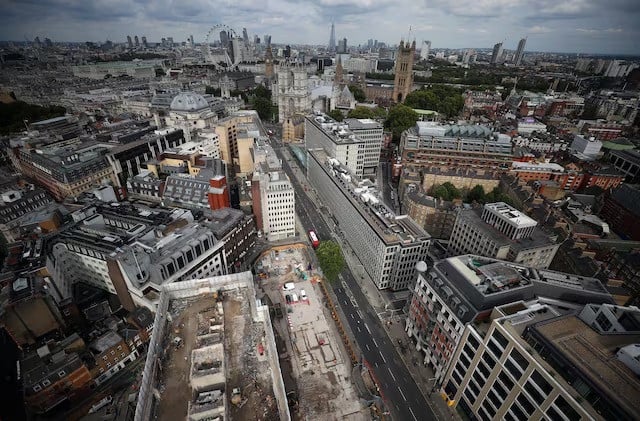Britain selected North Wales for its first small nuclear power station on Thursday, angering the United States which had wanted a large, U.S.-led plant built there as part of its greater involvement in the UK’s energy sector.
Britain has backed the development of small modular reactors (SMR) as a way to quickly and cheaply increase energy security and meet climate targets, with its pre-eminent engineering company Rolls-Royce (RR.L) leading the design. Large-scale nuclear power plants can take decades to build.
The decision to choose Wylfa on Anglesey, an island in North Wales that was home to an old nuclear station, for an SMR drew the ire of the U.S., which has criticised Britain’s energy strategy for inflating prices and weakening Britain.
“We are extremely disappointed by this decision, not least because there are cheaper, faster, and already-approved options to provide clean, safe energy at this same location,” U.S. ambassador Warren Stephens said in a statement.
The U.S. had been pushing for U.S. energy firm Westinghouse to lead a large-scale project in Wylfa, but Britain opted for the British-built SMR on the island in Wales, where the centre-left Labour Party is losing political support.
The government said it would consider building a new large-scale plant elsewhere and has tasked state-owned GB Energy-Nuclear with finding a suitable site by autumn 2026.
In what was an unusually strongly worded statement, the U.S. ambassador said that would not get “shovels in the ground” quickly, or bring down British industrial electricity prices which are among some of the highest in the world.
A spokesperson for British Prime Minister Keir Starmer said Wylfa was the best site for SMRs, but Britain was still keen to work with the United States on nuclear.
“This is a sovereign capability so we want to use the best site possible for our flagship programme,” the spokesperson told reporters.
“We will work closely with our U.S. partners, they remain vital to Britain’s nuclear future… (the decision) does not close the door to a larger plant elsewhere. We are keeping options open and making sure the U.S. has a meaningful role in our plans.”
The new mini-reactors there will deliver power for the equivalent of 3 million homes and will support up to 3,000 jobs in the local community during construction, with a plan to connect them to the grid in the 2030s.
There are two large-scale nuclear power plants currently under construction in Britain, one at Hinkley Point C in western England and one at Sizewell C in eastern England.
Starmer has cited his close relationship with U.S. President Donald Trump as helping on a range of fronts, from securing the first deal to relieve some U.S. tariffs to working together on conflicts in Ukraine and the Middle East.
But Trump has been an outspoken critic of Britain’s energy policy and efforts to reach net zero by 2050, calling on the government to drill more oil from the North Sea and criticising the country’s windfarms.
($1 = 0.7451 pound)




